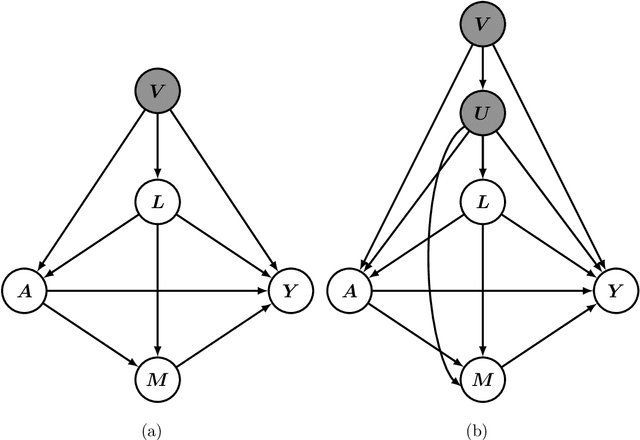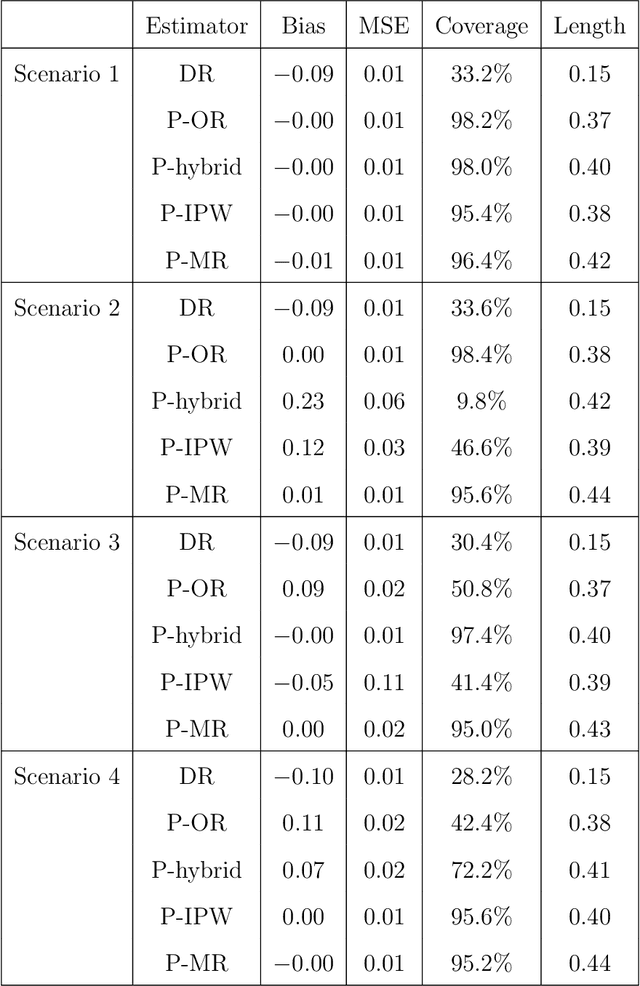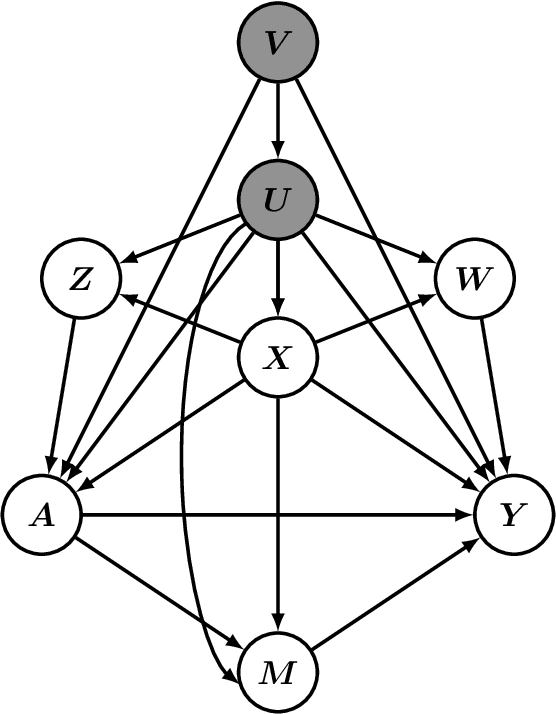Baoluo Sun
Proximal Inference on Population Intervention Indirect Effect
Apr 16, 2025



Abstract:The population intervention indirect effect (PIIE) is a novel mediation effect representing the indirect component of the population intervention effect. Unlike traditional mediation measures, such as the natural indirect effect, the PIIE holds particular relevance in observational studies involving unethical exposures, when hypothetical interventions that impose harmful exposures are inappropriate. Although prior research has identified PIIE under unmeasured confounders between exposure and outcome, it has not fully addressed the confounding that affects the mediator. This study extends the PIIE identification to settings where unmeasured confounders influence exposure-outcome, exposure-mediator, and mediator-outcome relationships. Specifically, we leverage observed covariates as proxy variables for unmeasured confounders, constructing three proximal identification frameworks. Additionally, we characterize the semiparametric efficiency bound and develop multiply robust and locally efficient estimators. To handle high-dimensional nuisance parameters, we propose a debiased machine learning approach that achieves $\sqrt{n}$-consistency and asymptotic normality to estimate the true PIIE values, even when the machine learning estimators for the nuisance functions do not converge at $\sqrt{n}$-rate. In simulations, our estimators demonstrate higher confidence interval coverage rates than conventional methods across various model misspecifications. In a real data application, our approaches reveal an indirect effect of alcohol consumption on depression risk mediated by depersonalization symptoms.
 Add to Chrome
Add to Chrome Add to Firefox
Add to Firefox Add to Edge
Add to Edge